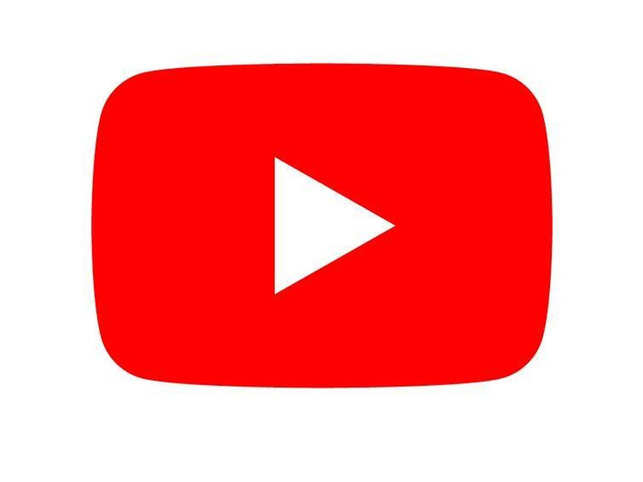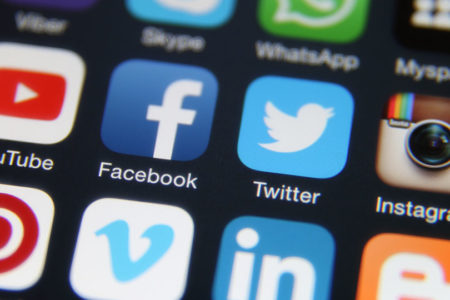Echo Chambers of Hate
Social-media networks have become echo chambers of anti-Semitic hatred. How did it happen? And why does it continue?
Every 83 seconds, someone uploads an anti-Semitic post to social media. In 2016 alone, more than 382,000 anti-Semitic posts appeared on Facebook, YouTube, and Instagram1—many of which were never removed—denying the Holocaust; portraying the Jewish people as genetically inferior; expressing hatred of them; calling for violence against them; and accusing them of such conspiracies as controlling Hollywood, elections, and world affairs.
These figures do not even account for posts demonizing or delegitimizing Israel. More than 2.6 million anti-Semitic Twitter posts, including those aimed at Israel, were viewed an estimated 10 billion times from August 2015 to July 2016, according to a study by the Anti-Defamation League.2
Posts such as “Hitler For President 2020 Seig Heil #Hail Hitler #KillJews” and “The Jewish [people] are responsible for every bad thing that has ever happened in this world. They all deserve to die. #Holocaust #killjews” have become common themes on social media.3
Unfortunately, social-media algorithms have created echo chambers for rampant, viciously anti-Semitic content that social-network giants refuse to remove.
Multiplying Evil
A metaphorical echo chamber is a place where one’s ideas and opinions are reinforced, or “echoed,” by people sharing the same opinion, unchallenged by competing viewpoints. The worlds of Facebook, Twitter, Instagram, and YouTube make it easy for anti-Semites to find one another and form closed communities—echo chambers—of like-minded people. They share information and support and strengthen one another’s beliefs.
In a 2016 study of Facebook users, researchers from two Italian institutions and Harvard Law School found that such polarized Facebook users share similar information-consumption patterns and social-network structures. “The more active a polarized user is on a specific content, the higher the number of friends who display the same behavior….Users with similar polarization tend to aggregate together,” the report said.4
Thus social media let anti-Semites congregate with one another online to spew their anti-Semitic hatred.
Furthermore, social-media algorithms learn users’ preferences and tailor their news feeds and advertisements accordingly, so people see only information they agree with and like.5 As a result, social networks help to reinforce even the most hardcore anti-Semitic beliefs and make people less likely to receive or consider opposing information or change their minds.
The study also found that these online communities welcome only information that supports their opinions and resist any data that challenges them. When fed false information that conformed to their beliefs, 80 percent of polarized users liked and commented on it. Less than 1.3 percent bothered with posts with which they disagreed.6
In a spring 2017 study at Indiana University’s Institute for the Study of Contemporary Anti-Semitism, students interacting with anti-Semites on Twitter and Facebook found that most of them ignored critical responses. Few felt the need to justify their views, and most of them grew aggressive. It proved impossible to change their opinions.7
Why Online Anti-Semitism Persists
Facebook, Twitter, and YouTube all have rules against hate speech. So why do they allow such hardcore anti-Semitic hatred on their platforms?
True, it’s impossible to block every objectionable user and remove every anti-Semitic post. In addition, nongovernmental organizations (NGOs) that flag anti-Semitic content for social media often lack necessary funding and personnel.
But a deeper, disturbing reason lies beneath the surface. Social-media sites manifest an inherent bias against Israel and the Jewish people. They quickly censor pro-Israel content and refuse to remove anti-Israel and anti-Jewish content—all the while promptly removing hate speech aimed at Arabs and other non-Jewish groups.
In 2016, The Times of Israel reported an experiment by the Israeli legal NGO Shurat HaDin that clearly revealed Facebook’s anti-Israel bias. The group posted calls for violence on two existing Facebook pages—“Stop Israelis” and “Stop Palestinians.” On the pro-Palestinian page it posted inflammatory messages like “Revenge against the Jewish enemy that threatens Al Aqsa! Death to all the Jews!” On the pro-Israel page it posted “Revenge against the arab enemy. Death to all the Arabs.”8
After several days, Shurat HaDin reported the pages to Facebook. Facebook quickly removed the pro-Israel “Stop Palestinians” page, claiming it contained threats of violence and violated the network’s community standards. The “Stop Israelis” page, however, remained.
“With over 30 Israelis killed in terror attacks since October [2015]—with many of the murderers receiving encouragement and motivation from social media—it is shocking that Facebook would continue to ignore instances of incitement against Israelis, while quickly fulfilling its obligation to remove other instances of incitement when it sees fit to do so, as we showed in this experiment,” said Shurat HaDin Director Nitsana Darshan-Leitner.
Twitter is even worse. According to a study by The World Jewish Congress, 63 percent of all anti-Semitic posts online occur on Twitter,9 and Twitter is more unwilling than Facebook to remove them. “Among social media platforms, Twitter has been the most stubborn one to refuse to cut off its service to terrorists, taking the position that ‘the tweets must flow,’ even if it means assisting in mass murder,” Darshan-Leitner said.10
What makes the social networks’ refusal to remove anti-Semitic content especially troubling is the fact that social media—particularly Facebook and Twitter—are the number one news sources for young Arab-Palestinians. “The incitement on the social networks is what is causing the wave of terror,” said Israeli Prime Minister Benjamin Netanyahu.11
More than 7 million people on Facebook and 191,000 on Twitter follow the Hamas-affiliated Shehab News Agency, and more than 175,000 people on Facebook and 20,900 people on Twitter follow the Islamic Jihad-affiliated Quds News Network. These sites glorify Palestinian terrorists, encourage violence against Jewish Israelis, and even provide detailed instructions on “how to stab a Jew.” They reach millions of people instantly and can incite violence faster than ever before.
Lawyers at Shurat HaDin are working on lawsuits against Facebook and Twitter for letting terrorists use their platforms to promote violence. One case involves 20,000 Israeli plaintiffs who blame Facebook for its part in the surge of terror attacks in Israel in October 2015.12
FOIGM YOUTUBE PAGE
Watch our ministry in action on The Friends of Israel Gospel Ministry YouTube Page.
YouTube (owned by Google) is no stranger to anti-Israel bias and ideological discrimination. Though it boasts of being a platform for free speech, YouTube repeatedly censors the pro-Israel, conservative videos uploaded by Prager University (PragerU), a politically conservative think tank founded by best-selling author and radio talk-show host Dennis Prager.
YouTube has restricted at least 50 PragerU videos, including “Why are there still Palestinian Refugees?” “Israel: The World’s Most Moral Army,” and “Israel’s Legal Founding.” When PragerU filed a complaint, YouTube claimed the videos were “not appropriate for a younger audience.”
However, YouTube does nothing to censor the vicious, anti-Semitic videos that pour into the homes of Arab-language speakers of all ages. “From London to Riyadh, Arabic speakers from all over the world are exposed to extreme forms of anti-Semitic hate on YouTube,” reported the World Jewish Congress.13
PragerU’s videos contain no inappropriate content or hate speech. Since Google has failed to act, PragerU has filed a lawsuit against the Internet giant. “YouTube insists that it is ‘committed to fostering a community where everyone’s voice can be heard,’” said PragerU’s attorney Eric George. “Google and YouTube use ‘restricted mode filtering’ not to protect younger or sensitive viewers from ‘inappropriate’ video content, but as a political gag mechanism to silence PragerU.”14
Perhaps PragerU and Shurat HaDin’s legal cases will help end the ruthless anti-Semitic hatred allowed in social media echo chambers. However, if they do not and the situation deteriorates further, social media probably will play a major role in turning the entire world against Israel and the Jewish people.
ENDNOTES
-
-
- “An anti-Semitic post is uploaded to social media every 83 seconds, WJC research finds,” worldjewishcongress.org, March 24, 2017 <goo.gl/GJpjJJ>.
- “ADL Task Force Issues Report Detailing Widespread Anti-Semitic Harassment of Journalists on Twitter During 2016 Campaign,” ADL.org, October 19, 2016 <goo.gl/A1qVXa>.
- “An anti-Semitic post is uploaded to social media every 83 seconds, WJC research finds.”
- Walter Quattrociocchi, Antonio Scala, Cass R. Sunstein, “Echo Chambers on Facebook,” 7, SSRN.com, June 15, 2016 <goo.gl/RFT9xw>.
- “The Reason Your Feed Became An Echo Chamber—And What To Do About It,” NPR.org, July 24, 2016 <goo.gl/bjP5sU>.
- Quattrociocchi, Scala, and Sunstein, 12–13.
- “Research report to the U.S. Department of State ‘Best Practices to Combat Antisemitism on Social Media,’” Institute for the Study of Contemporary Antisemitism: Indiana University, July 1, 2017 <goo.gl/y6i43f>.
- David Shamah, “Israeli NGO says Facebook test proves anti-Israel bias,” TimesofIsrael.com, January 5, 2016 <goo.gl/qxgHMn>.
- “An anti-Semitic post is uploaded to social media every 83 seconds, WJC research finds.”
- Ilana Messika, “Israeli NGO represents families suing Twitter for aiding and abetting terrorism,” Ynetnews.com, January 13, 2017 <goo.gl/QUG89Z>.
- Daniel Estrin, “For Palestinians, social media is source of news _ and anger,” APnews.com, October 24, 2015 <goo.gl/4Rzkg3>.
- “20,000 Israelis sue Facebook for ignoring Palestinian incitement,” TimesofIsrael.com, October 27, 2015 <goo.gl/2TQu6V>.
- “WJC launches social media campaign to expose Arabic-language anti-Semitism on social media,” worldjewishcongress.org, June 26, 2017 <goo.gl/x5rV1G>.
- Dave Bohon, “Prager Sues Google, Youtube Over Censorship,” TheNewAmerican.com, October 28, 2017 <goo.gl/sH2Bri>.
-










What a tremendous article!